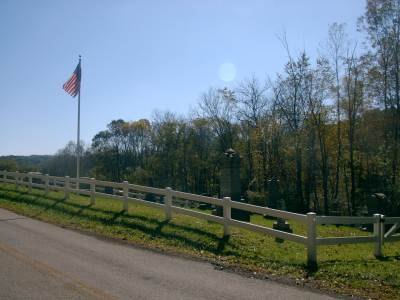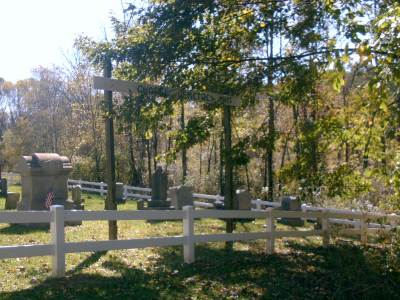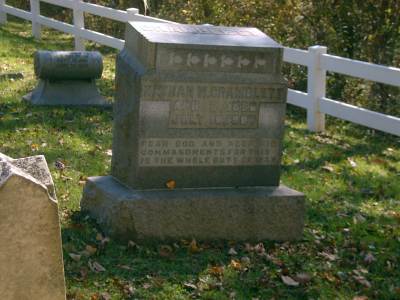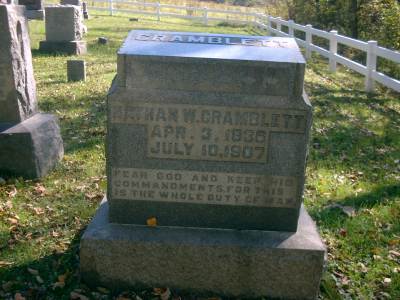Nathan W. Cramblett
1835-1907
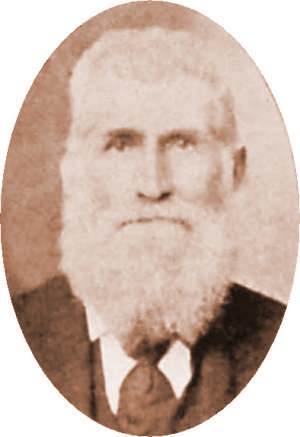
Ligon Portraiture Picture
The Life And Labor Of Nathan W. Cramblett
On the 11th inst. we were called to Newcomerstown, Ohio, to preach the funeral discourse of our old friend in the society of men and father in the gospel of Christ, Nathan W. Cramblett, but we were sick and could not go. Three years ago he requested us to prepare for the press after he had gone hence a brief sketch of his life and labors. This, he asked of us, because, as he said, "You have known me so many years." With data furnished by his direction if not at his dictation we now begin the work which we then promised to do.
The subject of this sketch was born near Smithfield, O., on April 3, 1836, and died at Newcomerstown, on July 10, 1907, and thus at the age of 71 years, 3 months and 7 days.
His parents, John and Joanna (Kennedy) Cramblett, were strong, vigorous, persons, and from them he inherited a good constitution. The Crambletts came originally from Germany, but "I," as he said, "am a mixture of German, Scotch, Irish, English and Welsh."
His parents had been members of the church of Christ and his father, he thought, had been appointed an elder of the Smithfield congregation, before he was born.
When he was two years of age they moved to Guernsey Co.; Ohio, which was then considered a new territory. He said, "I can remember when they had a wolf hunt there and when there were still deer and wild-cat in that country. It was a dense wilderness, so that I had the benefit of being raised and educated in the brush. At an early age I was put to work, learned to grub, chop, make rails and to do all kinds of rough farm work."
From childhood he was religiously inclined, and at an early age he began to commit to memory songs of praise and quotations of scripture. Then "New Testament Christianity," as he was wont to call it, "was almost unknown." His parents were stigmatized "Campbellites," and many times at school he was mistreated simply on account of their faith.
His educational advantages were very poor as, from the time he was twelve years of age until he was twenty-one, he averaged about twenty-five days a year at school. But industry and perseverance in the study of books at home helped him out. When he was twelve years of age his father was killed by accident and his mother and eleven children were left to work their way through the world.
At the age of fifteen he obeyed the gospel, was baptized by Bro. James Porter who was conducting a meeting in April 1851 at the home of Bro. Wesley Harding. When he was but a little child his parents and a few other persons met regularly one Lord's day at his father's house and the next at a neighbor's and worshiped and broke the loaf. "Thus;" said he, "early in life my mind became deeply imbued with the simplicity of Christianity, and at this early age I think that I knew my duty on first principles as well as I do now. I had read the New Testament through regularly three or four times besides promiscuous reading in the Old and in the New. I had read considerable history and had read Hall on the Design and Action of Christian Baptism. Hence I have never felt dissatisfied with my understanding and duty in the beginning of my profession." He could not attend the meeting for worship without going eight miles and many a Lord's day he walked this distance. "When yet a mere child," said he, "the thought occurred to me that I would spend my life preaching the gospel. This decision never changed, but from this time I was more diligent in reading the Scriptures and in committing them to memory. I was never satisfied until I commenced to preach and never have I been dissatisfied with my calling."
He commenced to preach in the summer of '59, and for awhile preached a discourse only occasionally, but soon began to devote his entire time to the work. Said he, "I have now been forty-seven years engaged in this work; and, while doubtless I might have accomplished more, yet I am constrained to say that my life as a preacher has not been a failure. I have preached in eight or nine states, but the bulk of my work has been in southeastern Ohio and considerable of it in West Virginia. I never thought of keeping a record of accession until it was too late. They became so numerous that I could not tell, but if they could be enumerated they would run into thousands. Sometimes I received in the manner nothing for my labors, but in the main my brethren treated me kindly and gave me a living support so that I have no complaint to make of them as far as my support is concerned. I never had to hunt for work, more came to me than I was able to perform. I have been associated with many grand, good preachers. Among them A. E. Myers, Joseph Dunn, Uriah Hoffman, and others. I can think of two or three only who, I have ever thought, tried to do me an injury and tried to cripple my influence."
Bro. Cramblett was married in 1857 to Margaret Gordon. To them five children were born, three sons and two daughters of whom one daughter and three sons are still living. Through the influence of Bro. Myers he was induced to enter Bethany College in 1868, but on the account of sickness and lack of funds he did not remain quite two years. "The knowledge," said he, "which I gained while there was a decided advantage to me ever afterwards," A number of times he was called by his brethren to defend the truth in public discussion, and, as far as we have ever learned, they were always satisfied with his efforts. More than once we heard him say, "If my brethren have sufficient confidence in me to make me their representative in defending the truth I feel that I owe to them my best efforts, and, hence my aim has always been never `to leave a stone unturned' in making my preparations." His plain and positive manner in presenting and in defending the truth sometimes, as he said "caused a little prejudice against me, but the bulk of my persecution and abuse has come from men called brethren, men who were not satisfied with what has been revealed, but, who desired to advocate innovations and to introduce them into the service of God."
"But now," said he, "my work is done, and I expect to render an account for my teaching and for the manner in which it was done. I am also very sure that those who have opposed the truth and that those who have presented it will be held strictly accountable in the great final judgment."
Grand old man! For seven and forty years he preached and defended the gospel of the grace of God, and we have always regarded him one of the grandest of all the good men of earth. Words can not express either our appreciation of the man or our sorrow because of his death. For years we had been as a father and a son, and many hours we have sat at his feet and listened and learned; and, while memory serves us we shall recall with pleasure and profit many lessons which we learned from him.
His trials were many but his faith never wavered and he always manifested a degree of patience which we have seldom if ever known in any other man.
He was above the ordinary in both size and intelligence, and though he had a powerful physical organization it was somewhat shaken by the confinement and hard work of his college days, and from the effects of which he perhaps never fully recovered.
His personality was strong, and during his last years his patriarchal appearance, reinforced by his deep-toned melodious chest voice, would at times impress his audiences with "the stillness of death." He was an extraordinary conversationalist and one of the best readers of human nature we have ever known. He was slow to impose confidence in men, but when once it was done it was hard to shake it, and when once destroyed it was seldom if ever restored.
But his work is done and he rests from his labors. Though he has gone the way of all the earth he still lives, lives in the memory of men and in the paradise of God. Blessed thought! absent from the body but present with the Lord.
"He has
finished his work;
Shall we mourn
our beloved one?
Or weep that
his face we no longer behold?
O! sweet is our
hope,
In this moment
of anguish,
We'll meet him
again in the City of Gold."
Lord help us! He had been gradually failing for several months, and when the end came he was at the home of his daughter, Sister Lucy Palmer, with whom he lived the last twenty months of his life. Funeral discourse was preached by Bro. C. H. Morin at Christian Chapel on July 12, 1907. Text 2 Sam. 3:38. Truly has there "a prince and a great man fallen this day in Israel." May his body rest in peace in the grave and his spirit in the paradise of God!
We are in sorrow but not without hope,
W. S. Gibbins.
Leader-Way, Christian Evangelist and Christian Standard please publish and each send copy to Bro. Evans Palmer, Newcomerstown, Ohio.
-Octographic Review, Vol. L No. 31 pg.5; July 30, 1907
![]()
Directions To The Grave of N.W. Cramblett
Nathan W. Cramblett is buried in the Chapel Cemetery, near Tippecanoe, Harrison County, Ohio.
From Wheeling, WV. about 50 miles. From I-70 take exit 202. Head up Hwy 800 north (Sewellville Rd.) Go through Tippecanoe, and then turn right on Kinsey Rd. (TWP162) Turn right on Weaver's Run Road (County Hwy. 34). Just across the Postal Road (Cty Rd. 8), the cemetery will be on the right.
From Dennison, Ohio about 8 miles. Head south on Hwy. 800. Turn left on Feed Spring Rd. and then right on Moravian Trail Rd. Then, turn right on Cty. Rd. 8, (Plum Run Rd.) Turn left on Cty. Rd. 39 (Weaver's Run Rd.) and the cemetery will be on the right. GPS Location of the grave: 40°18'39.6"N 81°15'54.0"W / or D.d. 40.311000, -81.264992

Nathan W. Cramblett
Apr. 3, 1835
July 10, 1907
Fear God And Keep His
Commandments, For This
Is The Whole Duty Of Man
![]()
Acknowledgement
-Special thanks are extended to Chuck Newell, a great Restoration Movement enthusiast and researcher, for providing location and pictures of the grave of N.W. Cramblett, October, 2006
-Special thanks to Terry J. Gardner for making this biographical sketch available, October, 2006
![]()
